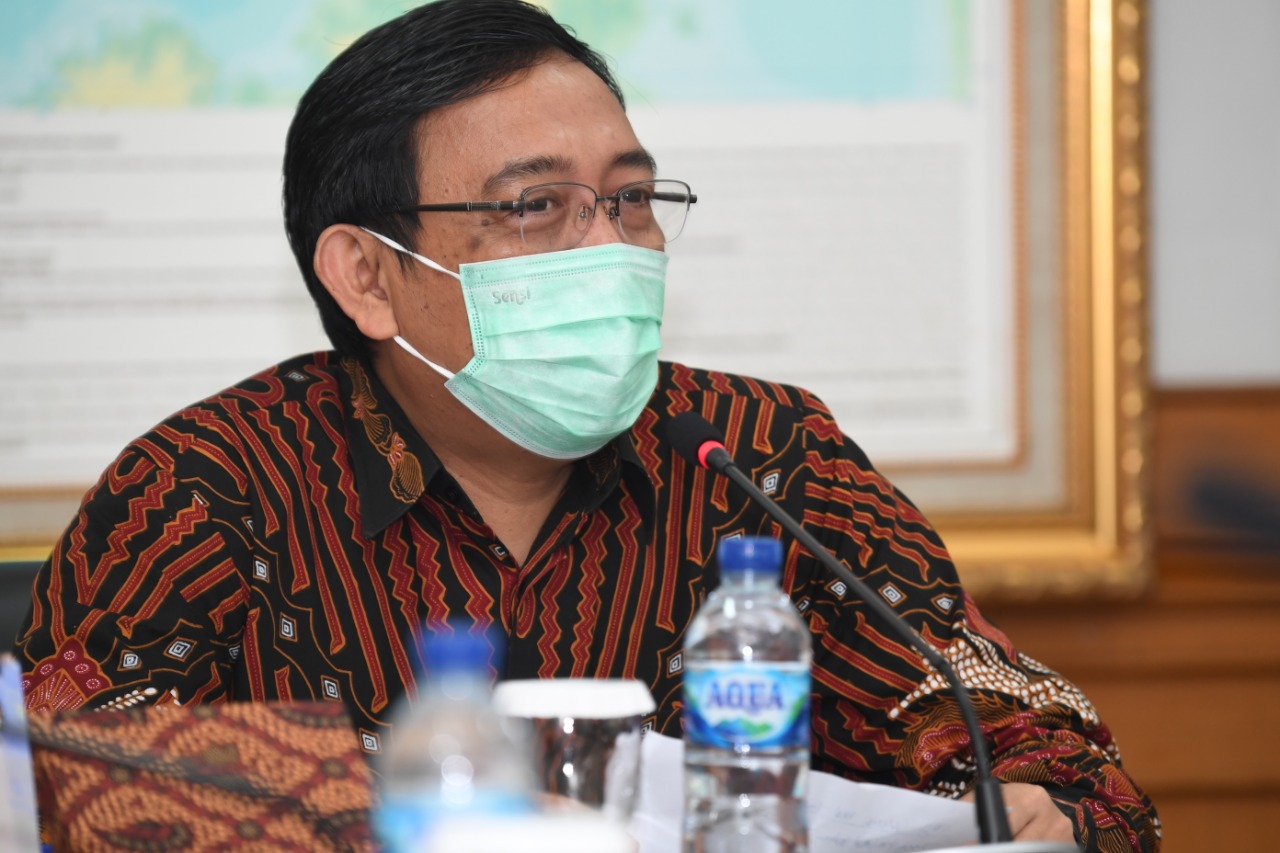
Until this article is published, the organizers of the re-election of regional heads in Yalimo Regency, Papua have not been able to carry out the stages according to the decision of the Constitutional Court (MK) which disqualified Erdi Dabi from running. Previously, the son of the former Yalimo Regent, Er Dabi, was declared unable to continue in the local head’s election because he was declared a convict in a traffic accident case that killed a policewoman officer. Erdi, who was then still deputy regent, was sentenced to four months in prison by a Jayapura District Court judge on 18 February 2021 and released on 6 July.
The local General Elections Commission (KPUD) assessed that some of the people in the area which was divided from the main Jayawijaya district on January 4, 2008 had not yet been able to accept the Constitutional Court’s decision. Instead of being regarded as hope for the process of democratization and regional development, the decision was being controversy because actually considered a violation of procedure because it was decided after Erdi was ratified as a candidate and had gone through the voting stages.
Yalimo District is one of 11 regencies in the Central Highlands region of Papua which conduct simultaneous regional head elections (local vote) in the past 2020. The regency, which has an area of 4,330.29 square kilometers, consists of five districts, namely Elelim, Abenaho, Benawa, Apalapsili and Welarek.
However, from the beginning, the atmosphere of the Yalimo regional election was often marked with by-clashes among the camps. Supporters of one candidate mate even had time to hold back the material of elections logistics, resulting in about 13,000 voters in Apalapsili District being unable to express their aspirations. The escalation of the conflict increased massively even after the Constitutional Court through a decree numbered 145 / PHP.BUP-XIX / 2021 which disqualify Erdi Dabi and ordered a re-voting. Hundreds of mass which allegedly being Erdi supporters burned down dozens of government buildings and hundreds of homes and kiosks in Elelim District. The riots caused over 1,300 residents to evacuate to a number of places. While the total material losses were estimated at more than IDR 300 billion.
Therefore, a month after the Constitutional Court decision the organizers of the elections in Yalimo still have not been able to run the task due to security considerations. The commissioner of the Central General Elections Commission (KPU) intervened to assist the re-voting process in Yalimo. The complexity of the problems at Yalimo made the Election commission seek various ways so that the re-voting could be held safely, peacefully, and smoothly. Jaring.id journalist, Abdus Somad further explores how efforts to resolve the local elections in Yalimo through the commissioner of The General Elections Commission, Kade Wiarsa Dewa Raka Sandi. The following is an excerpt of an interview conducted on Wednesday, July 14, 2021.
After the Constitutional Court disqualified Erdi Dabi from the election of the regions, the security situation in Yalimo has not been conducive to running re-election. How does the solution of the Commission?
We are concerned about the impact of these events extraordinary. We have not come directly to Yalimo because it has not been possible. We have had coordination meetings, we have held several meetings also at the general election commission after the verdict was read out. We focus on looking for a way out how to follow up the Constitutional Court’s decision can be implemented because it is the obligation of the Elections Commission. We hope that the upcoming situation in Yalimo will be conducive and that it is hoped that it will recover soon.
How do you respond to that used for security reasons used by the organizers at Yalimo not to want to carry out the decision?
On Saturday, July 10, we had a meeting. Actually, there are too many requirements for running the elections and re-voting, such as technical aspects of organizing and non-technical implementation. I think the Commission is ready and capable, but the problems that occur in the field regarding safety and security issues. To be able to carry out it, there needs to be a synergy between the organizers, participants, voters, and government officials as well as security forces. Our focus aside from coordinating we are conducting the stages of the local elections and preparing the budget. Yalimo Commission has been discussing the draft.
In addition, there needs to be a comprehensive effort between the commission of election, Supervisory agency, and the role of the community, religious leaders, political parties, and candidate mates. All parties, including the media, contribute to providing enlightening information. It is important for the community to know what is their rights and obligations are. In addition, they are also able to contribute to and participate in the Yalimo re-voting.
We arrange the stages, the budget but the impact of social recovery and the community tensions will be rendered difficult. I think this is a serious effort by the Commission to follow up on the Constitutional Court’s decision. The Commission can not be alone, especially in normal circumstances, the participation of all parties becomes important for all stages of running well.
Is it true that the commission of the election and the Supervisory agency of Yalimo resigned because they refused to implement the Constitutional Court’s decision?
We make clarifications directly to the parties concerned. The fact is that the chairman and members of the Yalimo Election commission along with the ranks of the secretariat are still carrying out their duties. However, because there is no office in the district, they have a meeting at the Commission while nearby counties namely Wamena. In principle, the Yalimo Election commission continues to carry out its duties as it should. Even if we resign, we have rules both in the Election law and the Election commission regulations. So do not be resign arbitrarily. We have a mechanism.
Speaking about the budget, how far has it been discussed?
It’s not final because of the situation. We looked there are two budgets. The first is the process in the stage and outside the stage. For the outside stages, we focus on building the office that was on fire. The design was prepared. There is already a meeting in the Papua election commission office, Yalimo, and local governments.
The preparation process takes time. We design for the existing needs. We don’t want to hurry things, because there are concerns that the organizers will have problems with the process. The Constitutional Court’s process remains to be implemented, but the necessary accuracy. We’ve already discussed this. We will coordinate with the local authorities whether they are able to meet the budget requirements. If you can’t, you need a mechanism. According to the Election Law, the budget for re-voting comes from local, provincial, and city governments. If there is no budget, it will be evaluated together along with the Commission, Minister of Home Affairs, House of Representatives to find a way out.
What are the commission efforts to implement the re-voting in Yalimo?
We have had a meeting with the commission officials. We had an audience with the military commander of Cenderawasih, Coordinator Minister for political, legal, and security affairs to find a way out related to social impact. The focus of the Election Commission is to follow up on the Constitutional Court’s decision. After an audience with the military commander of Cenderawasih, we coordinate with the Police so that they were both committed to implementing the re-voting. Events like the Yalimo are not the only ones we’ve ever handled. There are Nabire and Boven Digul also doing re-voting.
The election commission has 120 days since the verdict was read, so mid-December 2021 is the final deadline. We are trying to carry out the re-voting stage if the situation is conducive. In addition, according to the Constitutional Court’s decision, the Election Commission is required to be supervised and report it to the Constitutional Court. So our focus is two, the first is how to get the Yalimo Commission to set the stage and budget. In addition, in coordination with relevant stakeholders and local authorities, security forces and religious leaders, as well as the local community. So far, the stages just getting there.
We have also requested that the Yalimo Commission to arrange a re-voting stage. The stages include the program, schedule, budget requirements. The stages of socialization will be followed by nominations. After that, the candidates who will compete are immediately determined. It is possible that a campaign will also be held. The preparation of the stages takes time so that the constitutional rights of citizens can be accommodated. On the other hand, the implementation is not past the deadline.
In conditions that make it impossible to carry out the Constitutional Court’s decision, what option will the Commission choose?
Our focus is to carry out. There’s still time. The implementation is probably around December 17, 2021. The Commission is carrying out our obligations. Of course, there is an evaluation on stage. We want the people in conditions of peace and safe. Sometimes escalation increases. We are optimistic that the re-voting can be done. This is part of our love of democracy.
Whether the delay is also an option?
I’m not assuming. We follow and listen to the parties involved, although this is not easy in carrying out its main duties and functions. We hope this will goes well, I believe our brothers in Papua certainly think that is the best in their area and the continuity of our democracy. I can’t speculate whether or not. We hope the re-voting can be done. This is the authority of the law and our commitment that we should respect.







